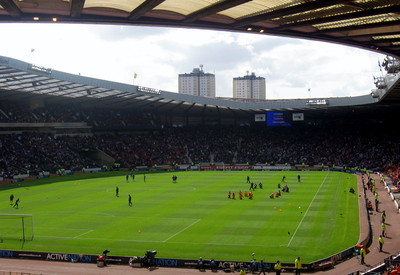
The Scottish Football Association Challenge Cup, or the Scottish Cup for short, is a domestic club tournament held each year for members of the SFA. This is the second oldest association football tournament in the world having been held for the first time during the 1873/74 season. The only trophy of its kind that predates this is the English FA Cup.
The first winners of the Scottish Cup were Queen’s Park, Scotland’s oldest club. They went on to win ten of the first twenty editions. Glasgow giants Celtic and Rangers have dominated the Scottish Cup over the years, sharing 73 titles between them.
The Scottish Cup Final is normally played at Scotland’s national stadium, Hampden Park in Glasgow.
Scottish Cup Final Winners by Year
| Season | Winner | Score | Runner-up |
|---|---|---|---|
| 2021–22 | Rangers | 2–0 (AET) | Heart of Midlothian |
| 2020–21 | St Johnstone | 1–0 | Hibernian |
| 2019–20 | Celtic | 3–3 | Heart of Midlothian |
| 2018–19 | Celtic | 2–1 | Heart of Midlothian |
| 2017–18 | Celtic | 2–0 | Motherwell |
| 2016–17 | Celtic | 2–1 | Aberdeen |
| 2015–16 | Hibernian | 3–2 | Rangers |
| 2014–15 | Inverness Caledonian Thistle | 2–1 | Falkirk |
| 2013–14 | St Johnstone | 2–0 | Dundee United |
| 2012–13 | Celtic | 3–0 | Hibernian |
| 2011–12 | Heart of Midlothian | 5–1 | Hibernian |
| 2010–11 | Celtic | 3–0 | Motherwell |
| 2009–10 | Dundee United | 3–0 | Ross County |
| 2008–09 | Rangers | 1–0 | Falkirk |
| 2007–08 | Rangers | 3–2 | Queen of the South |
| 2006–07 | Celtic | 1–0 | Dunfermline Athletic |
| 2005–06 | Heart of Midlothian | 1–1 | Gretna |
| 2004–05 | Celtic | 1–0 | Dundee United |
| 2003–04 | Celtic | 3–1 | Dunfermline Athletic |
| 2002–03 | Rangers | 1–0 | Dundee |
| 2001–02 | Rangers | 3–2 | Celtic |
| 2000–01 | Celtic | 3–0 | Hibernian |
| 1999–00 | Rangers | 4–0 | Aberdeen |
| 1998–99 | Rangers | 1–0 | Celtic |
| 1997–98 | Heart of Midlothian | 2–1 | Rangers |
| 1996–97 | Kilmarnock | 1–0 | Falkirk |
| 1995–96 | Rangers | 5–1 | Heart of Midlothian |
| 1994–95 | Celtic | 1–0 | Airdrieonians |
| 1993–94 | Dundee United | 1–0 | Rangers |
| 1992–93 | Rangers | 2–1 | Aberdeen |
| 1991–92 | Rangers | 2–1 | Airdrieonians |
| 1990–91 | Motherwell | 4–3 | Dundee United |
| 1989–90 | Aberdeen | 0–0 | Celtic |
| 1988–89 | Celtic | 1–0 | Rangers |
| 1987–88 | Celtic | 2–1 | Dundee United |
| 1986–87 | St Mirren | 1–0 | Dundee United |
| 1985–86 | Aberdeen | 3–0 | Heart of Midlothian |
| 1984–85 | Celtic | 2–1 | Dundee United |
| 1983–84 | Aberdeen | 2–1 | Celtic |
| 1982–83 | Aberdeen | 1–0 | Rangers |
| 1981–82 | Aberdeen | 4–1 | Rangers |
| 1980–81 | Rangers | 4–1 | Dundee United |
| 1979–80 | Celtic | 1–0 | Rangers |
| 1978–79 | Rangers | 3–2 | Hibernian |
| 1977–78 | Rangers | 2–1 | Aberdeen |
| 1976–77 | Celtic | 1–0 | Rangers |
| 1975–76 | Rangers | 3–1 | Heart of Midlothian |
| 1974–75 | Celtic | 3–1 | Airdrieonians |
| 1973–74 | Celtic | 3–0 | Dundee United |
| 1972–73 | Rangers | 3–2 | Celtic |
| 1971–72 | Celtic | 6–1 | Hibernian |
| 1970–71 | Celtic | 2–1 | Rangers |
| 1969–70 | Aberdeen | 3–1 | Celtic |
| 1968–69 | Celtic | 4–0 | Rangers |
| 1967–68 | Dunfermline Athletic | 3–1 | Heart of Midlothian |
| 1966–67 | Celtic | 2–0 | Aberdeen |
| 1965–66 | Rangers | 1–0 | Celtic |
| 1964–65 | Celtic | 3–2 | Dunfermline Athletic |
| 1963–64 | Rangers | 3–1 | Dundee |
| 1962–63 | Rangers | 3–0 | Celtic |
| 1961–62 | Rangers | 2–0 | St Mirren |
| 1960–61 | Dunfermline Athletic | 2–0 | Celtic |
| 1959–60 | Rangers | 2–0 | Kilmarnock |
| 1958–59 | St Mirren | 3–1 | Aberdeen |
| 1957–58 | Clyde | 1–0 | Hibernian |
| 1956–57 | Falkirk | 2–1 | Kilmarnock |
| 1955–56 | Heart of Midlothian | 3–1 | Celtic |
| 1954–55 | Clyde | 1–0 | Celtic |
| 1953–54 | Celtic | 2–1 | Aberdeen |
| 1952–53 | Rangers | 1–0 | Aberdeen |
| 1951–52 | Motherwell | 4–0 | Dundee |
| 1950–51 | Celtic | 1–0 | Motherwell |
| 1949–50 | Rangers | 3–0 | East Fife |
| 1948–49 | Rangers | 4–1 | Clyde |
| 1947–48 | Rangers | 1–0 | Morton |
| 1946–47 | Aberdeen | 2–1 | Hibernian |
| 1938–39 | Clyde | 4–0 | Motherwell |
| 1937–38 | East Fife | 4–2 | Kilmarnock |
| 1936–37 | Celtic | 2–1 | Aberdeen |
| 1935–36 | Rangers | 1–0 | Third Lanark |
| 1934–35 | Rangers | 2–1 | Hamilton Academical |
| 1933–34 | Rangers | 5–0 | St Mirren |
| 1932–33 | Celtic | 1–0 | Motherwell |
| 1931–32 | Rangers | 3–0 | Kilmarnock |
| 1930–31 | Celtic | 4–2 | Motherwell |
| 1929–30 | Rangers | 2–1 | Partick Thistle |
| 1928–29 | Kilmarnock | 2–0 | Rangers |
| 1927–28 | Rangers | 4–0 | Celtic |
| 1926–27 | Celtic | 3–1 | East Fife |
| 1925–26 | St Mirren | 2–0 | Celtic |
| 1924–25 | Celtic | 2–1 | Dundee |
| 1923–24 | Airdrieonians | 2–0 | Hibernian |
| 1922–23 | Celtic | 1–0 | Hibernian |
| 1921–22 | Morton | 1–0 | Rangers |
| 1920–21 | Partick Thistle | 1–0 | Rangers |
| 1919–20 | Kilmarnock | 3–2 | Albion Rovers |
| 1913–14 | Celtic | 4–1 | Hibernian |
| 1912–13 | Falkirk | 2–0 | Raith Rovers |
| 1911–12 | Celtic | 2–0 | Clyde |
| 1910–11 | Celtic | 2–0 | Hamilton Academical |
| 1909–10 | Dundee | 2–1 | Clyde |
| 1908–09 | Rangers | Withheld | Celtic |
| 1907–08 | Celtic | 5–1 | St Mirren |
| 1906–07 | Celtic | 3–0 | Heart of Midlothian |
| 1905–06 | Heart of Midlothian | 1–0 | Third Lanark |
| 1904–05 | Third Lanark | 3–1 | Rangers |
| 1903–04 | Celtic | 3–2 | Rangers |
| 1902–03 | Rangers | 2–0 | Heart of Midlothian |
| 1901–02 | Hibernian | 1–0 | Celtic |
| 1900–01 | Heart of Midlothian | 4–3 | Celtic |
| 1899–00 | Celtic | 4–3 | Queen’s Park |
| 1898–99 | Celtic | 2–0 | Rangers |
| 1897–98 | Rangers | 2–0 | Kilmarnock |
| 1896–97 | Rangers | 5–1 | Dumbarton |
| 1895–96 | Heart of Midlothian | 3–1 | Hibernian |
| 1894–95 | St Bernard’s | 2–1 | Renton |
| 1893–94 | Rangers | 3–1 | Celtic |
| 1892–93 | Queen’s Park | 2–1 | Celtic |
| 1891–92 | Celtic | 5–1 | Queen’s Park |
| 1890–91 | Heart of Midlothian | 1–0 | Dumbarton |
| 1889–90 | Queen’s Park | 2–1 | Vale of Leven |
| 1888–89 | 3rd Lanark RV | 2–1 | Celtic |
| 1887–88 | Renton | 6–1 | Cambuslang |
| 1886–87 | Hibernian | 2–1 | Dumbarton |
| 1885–86 | Queen’s Park | 3–1 | Renton |
| 1884–85 | Renton | 3–1 | Vale of Leven |
| 1883–84 | Queen’s Park | Walkover | Vale of Leven |
| 1882–83 | Dumbarton | 2–1 | Vale of Leven |
| 1881–82 | Queen’s Park | 4–1 | Dumbarton |
| 1880–81 | Queen’s Park | 3–1 | Dumbarton |
| 1879–80 | Queen’s Park | 3–0 | Thornliebank |
| 1878–79 | Vale of Leven | Walkover | Rangers |
| 1877–78 | Vale of Leven | 1–0 | 3rd Lanark RV |
| 1876–77 | Vale of Leven | 3–2 | Rangers |
| 1875–76 | Queen’s Park | 2–0 | 3rd Lanark RV |
| 1874–75 | Queen’s Park | 3–0 | Renton |
| 1873–74 | Queen’s Park | 2–0 | Clydesdale |
Tournament Format & Background
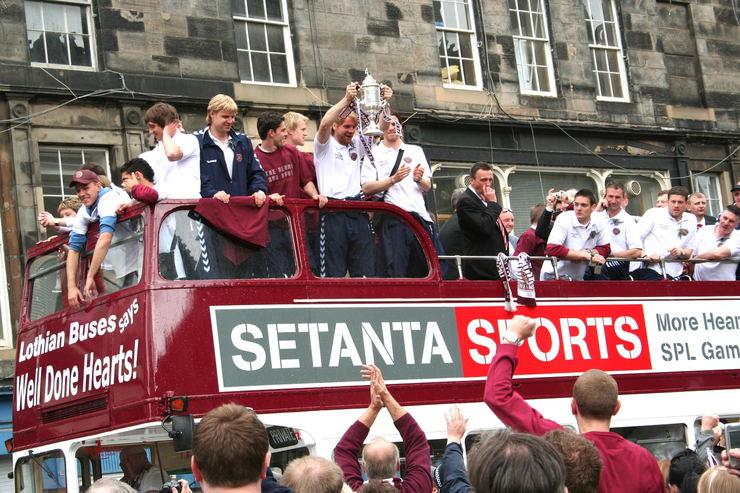
With one or two preliminary rounds to play before the tournament proper begins, the Scottish Cup usually commences in August, before the first round of league fixtures. With the final not typically scheduled until May, this is a lengthy competition and one that often sees in excess of 100 matches played. Each round of the competition, from the first to the last, is a one-legged knockout match. A few years ago, apart from the final two rounds, when a match ended as a draw, a replay would be forced. This replay would take place at the home ground of the team that played the initial contest away.
A rule change implemented in 2021 though meant that replays were scrapped from the fourth round onwards. This means that these extra rounds now follow the semi-final/final route of having extra time followed by penalties in the event of a draw. The Scottish FA does have the power to change the rules at any time so it is possible that replays could be brought back in at some stage. Given the fixture congestion they cause and the limited appetite for them though, it seems more likely that if anything in future we will see fewer replays rather than more.
For the early round replays that still exist, if the second meeting between two clubs ends in a draw, the game will head straight to penalties. In previous editions of the tournament, tied replays would first feature 30 minutes of extra time and only then would a penalty shootout be called upon.
Preliminary Round & Eligibility
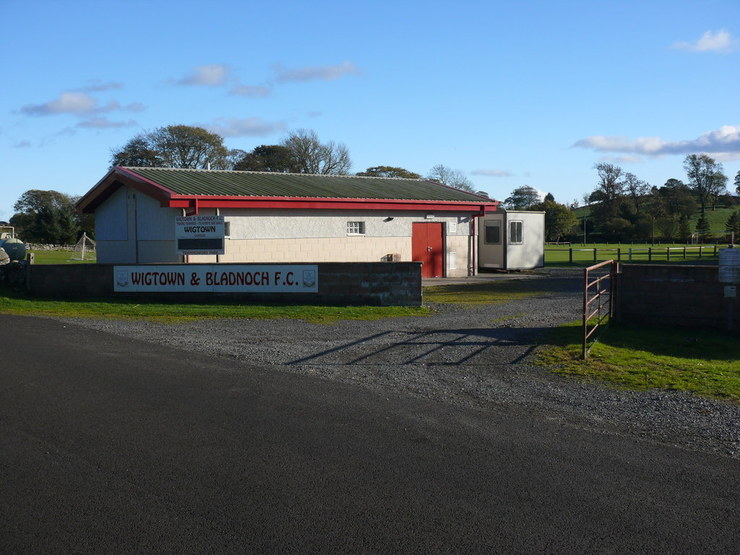
The number of teams entering the Scottish Cup varies each year so the exact number of fixtures during the early stages and in particular the preliminary round varies. Additionally, is it possible that there will be either one or two preliminary stages. The 2021/22 Scottish cup featured just one whereas the 2019/20 edition featured two. In all cases, though this stage will feature the very lowest-ranked teams in the competition, below the Highland and Lowland League teams. This includes clubs from the likes of the East of Scotland League, South of Scotland League and West of Scotland League. Most of these will be on the sixth tier of Scottish football but seventh-tier sides can also feature.
You will not find any old pub team in the Scottish Cup because there are rules on who can take part. All SFA members automatically qualify and this covers all teams playing in the SPFL (top four tiers) or the Highland or Lowland League (tier 5). As well as this, clubs that are not full SFA members can automatically qualify by winning a tier six league or a specific cup competition such as the Scottish Junior Cup or Scottish Amateur Cup. As for player eligibility, players can only represent one club during each Scottish Cup. This, or any other instance of fielding an ineligible player (for instance someone not registered in time), will typically result in a fine and expulsion from the tournament.
Not all teams in the first preliminary round draw will necessarily feature as it is common for several teams to receive a bye (either into the second round or first round proper).
Proper Rounds
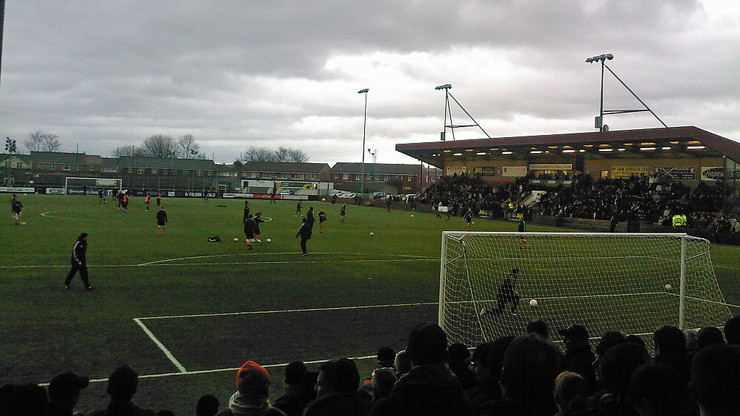
With qualification out the way, the first round of the competition can begin, usually sometime in September. As well as the victorious preliminary round clubs, or those that received a bye, the Highland League and Lowland League teams join at this stage. Winners advance to the second round, at which point League Two teams join the competition, so 10 fresh clubs. There is twice the number of new entries for the third round because this is when League One and Championship clubs make their cup debut for that season.
For the teams that are still surviving in the competition at this stage, their reward is their name being included in the fourth round draw. For any lower-league side that has made it this far, they can potentially get a headline tie against one of the Premiership big boys. All top-flight clubs enter at the fourth round stage so there is a real possibility for a David versus Goliath battle. There have been some real upsets in the past too, as we will discuss later, with no team too big to avoid a humbling defeat.
From this point onwards it is just a straight knockout battle among those left in the competition with no matches replayed. The winners progress to the fifth round and if they can win once again they will find themselves in the quarter-finals. There is nothing different about this round but there is a slight change for the semi-final. Rather than it being a home/away fixture, both semi-finals take place at a neutral venue, Hampden Park in Glasgow.
This in theory should help make both semi-final ties a little more even as no side benefits from home advantage. For the two teams that win their semi-final match, they will return to Hampden Park around a month later for the final showdown.
The Final

The first-ever Scottish Cup final, which took place at the original Hampden Park, only attracted a crowd of 2,500. This is a tiny fraction of the numbers witnessed in more modern editions of the tournament with 40,000+ almost always exceeded and in excess of 50,000+ quite common too. For the last century, Hampden Park has been the host stadium for the final although there have been a small number of exceptions that have seen the match played at Ibrox Stadium or Celtic Park. Most recently this occurred in 2014 as the Commonwealth Games rendered Hampden Park unavailable for football use at the time.
For much of Scottish Cup history, a tied final would force a replay. In three instances the final even required a second replay, the last time this happened was in 1979 as Rangers beat Hibs at the third time of asking. Replays were scrapped in 1981 though and now the final is settled by extra time and a penalty shootout if required although seldom is this the case. Quite unusually when compared to other knockout competitions, the Scottish Cup final very rarely heads to extra time let alone penalties. Between the 1992 and 2021 finals, only twice was the contest not settled within normal time. As both these exceptions were settled by a penalty shootout, you have to go all the way back to 1991 to find the last time a side lifted the Cup after scoring the winner in extra time.
Previous Formats
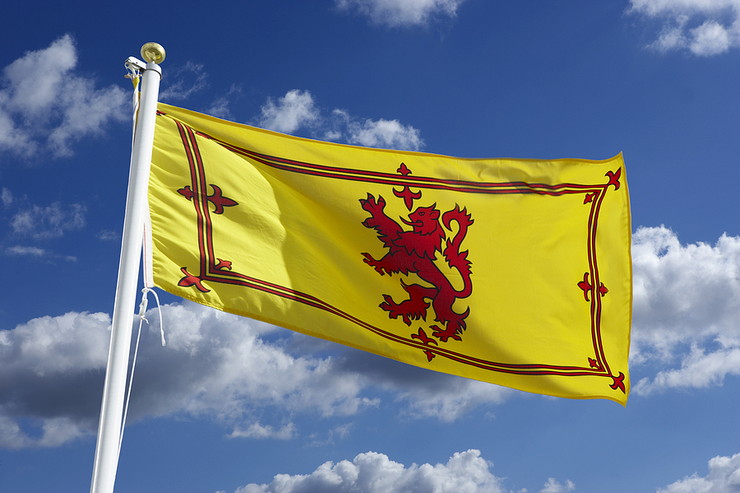
For a competition that is around 150 years old, it should be no surprise to learn that there have been some changes to its format. One of the biggest changes is the number of extra rounds as the first-ever edition of the tournament featured a mere four rounds and 16 teams. Despite there only being 15 matches this year, two of them had to be cut short due to darkness due to kicking off later than scheduled. Today, when the draw for a round is made, the team represented by the first ball selected plays the match at home but this was not the case in 1873. In the first round, five teams won a coin toss meaning they got to play the fixture at home, despite the draw putting them away initially.
Even back in these times though the tournament featured as a knockout with some byes handed out to ensure the numbers worked. By the turn of the century, there was no need for byes as the tournament featured 32 clubs, meaning there were simply five knockout rounds. At this time, as with many decades before and after, replays were used to settle all drawn ties and there would be as many replays as it took to find a winner. Teams requiring two or three replays were far from unusual and there could even be more than this. Skip forward a little to 1908/09 and Beith played Broxburn Athletic five times before the former prevailed. As the second and third replays featured extra time, this meant the two clubs had battled it out for 510 minutes just to progress from the first round.
Starting in 1960, there was an extra prize for winning this cup competition: a place in the UEFA Cup Winners’ Cup. This continued until the continental competition was eventually abolished in 1998. The prize of European football did not disappear though with Scottish Cup champions simply heading to the UEFA Cup (Europa League) instead. For a time, the Scottish Cup runners-up would also bag themselves a European tour, if the winner qualified for the Champions League via a league finish. This rule was however scrapped in 2014.
Temporary 2020/21 Rule Changes
The 2020/21 Scottish Cup ran to completion despite the challenges faced by the global crisis. To try and ensure this was the case though, the Scottish FA did make some rule changes to the competition for this year. For one, all replays were scrapped in order to not add the fixture congestion issue and any postponed match had to be rearranged for the next week. Additionally, clubs facing a Premiership side were required to ensure test their players. Any team unable to meet these requirements were free to withdraw from the competition and they would still be paid as though they had played.
These measures were only ever intended as being temporary and heading into the following season things were largely back to the normal, bar a couple of fresh changes.
Tournament History

When the Scottish FA formed in 1873, they were extremely quick to organise a cup competition for their members. By 18th October 1873, the first match of this new tournament was played with Renton knocking Kilmarnock out of the tournament courtesy of a 2-0 win. For many of the early years, it was Queen’s Park who were the most feared team, not a side you ever wanted to be drawn against. In the opening decade of the Scottish Cup, the Glasgow based club lifted the trophy on 10 occasions and were only once defeated in the final.
The trophy itself, still used today, is the oldest association football trophy in existence. Designed by Glasgow silversmith George Edward & Sons, it is 50cm tall and weighs 2.25kg. The champions are handed the trophy each year during the presentation ceremony but they do not keep it. Instead, it lives inside the Scottish Football Museum located within Hampden Park. The winning side does not end up empty-handed though as they are awarded a replica that they can put in their own trophy cabinet.
Since its inception, the Scottish Cup has generally run every year but there were no editions during WWI (1914/15 to 1918/19) and WWII (1939/40 and 1945/46). There was however a Scottish War Emergency Cup held in 1939/40 but as this was not organised by the Scottish FA, who has suspended football, it is not considered part of Scottish Cup history. The only other year not to see a cup winner was in 1908/09 due to some violent fan riots in the replay between Rangers and Celtic. The replay ended as a draw but due to the troubles, the Scottish FA did not want to host another re-match so they effectively called the off competition.
Most Successful Teams
Queen’s Park may not have won a Scottish Cup since 1893 but quite incredibly they are still the third most successful Scottish Cup side of all time. Thanks to the huge domination enjoyed by Celtic and Rangers, other teams have struggled to get their hands on the trophy, even when getting to the final. Since Celtic claimed their first trophy in 1891, either themselves or bitter rivals Rangers have won more than half of all Scottish Cups between them.
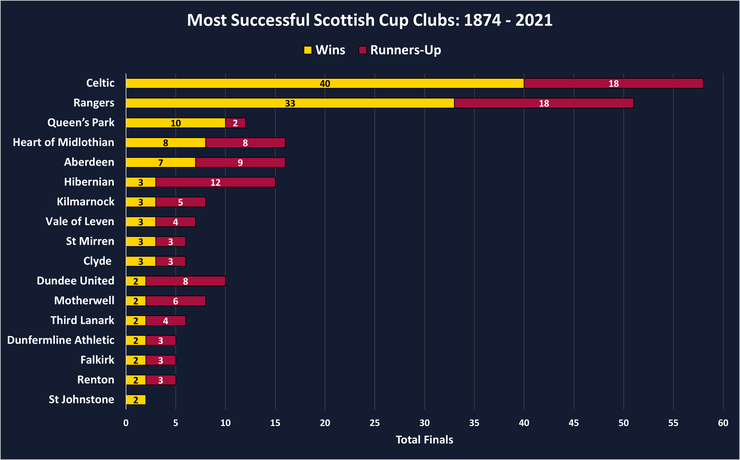
The above chart shows all clubs with more than one Scottish Cup victory. In addition to this, Dumbarton, Dundee, Airdrieonians, East Fife, Greenock Morton, Partick Thistle, Inverness Caledonian Thistle and St Bernard’s each have one victory to their name. As you can see, with Rangers and Celtic both having a very strong finals record, most other teams have lost more finals than they have won. This tournament has been particularly cruel to the likes of Hibs who have 3 wins from 15 finals appearances and Dundee United who have just two victories from 10.
There are nine Scottish teams that have gone as far as the final but remain without a taste of Scottish Cup success. All but one of these have lost just one final, the most recent example being Ross County who made their last round debut in 2010. Hamilton Academical however have suffered defeat at the last stage on two occasions, doing so in 1911 and 1935.
Major Upsets
One reason the Scottish Cup captures the imagination of fans across the country is that there is always a chance, no matter how unlikely, of a shock result. The one-legged knockout format means that one big slice of luck can be all it takes to takes for a minnow to take home a huge scalp. This tournament has been littered with genuine upsets over the years but some stand out more than the rest. East Fife certainly deserves a mention for being the first Division Two club to lift the trophy in 1938, the first time the cup winner was not a top-tier side. Hibernian pulled off the same achievement in 2016 by beating fellow second-tier side Rangers in an extremely atypical final showdown.
As for one-off shocks, Highland League club Fraserburgh beating a Dundee side full of Scottish internationals in 1959 was a most embarrassing outcome. Rangers were also humbled eight years later when losing in the first round to Berwick Rangers despite being the defending champions. Perhaps the best of the best upsets came in 2000 though when Celtic lost to Inverness Caledonian Thistle; as a result, The Sun newspaper published the famous headline “Super Caley go ballistic, Celtic are atrocious”. While many football fans have heard of this great line before, few know that the Liverpool Echo rather beat the Sun to it. When Liverpool’s Ian Callaghan ran riot against a certain London side in the 1970s, the local paper went with ‘Super Cally Goes Ballistic, QPR atrocious’.
Although the gap between the top teams in Scottish football and those in lower tiers has arguably increased in recent years, this has not prevented occasionally shocks in this competition. Championship leaders and later division winners Hearts lost to Highland League side Brora Rangers in 2020/21. A year later title holders St Johnstone lost to Kelty Hearts despite three full tiers separating them.
Other Scottish Cup Records
Finally, we leave you with an assortment of Scottish Cup records including a rather one-sided match in 1885.
- Most Consecutive Wins – Celtic went four years unbeaten in the cup between 2016/17 and 2019/20. The last win in 2020 ensured they made history by winning three consecutive quadruples.
- Most Consecutive Finals Appearances – Rangers reached the last stage of the competition eight years running starting in 1975.
- Longest Gap Between Wins – Hibs had to wait 114 years for another Scottish Cup win after their first, eventually breaking the cursed run in 2016. In this gap they set the record for having the longest losing streak in the final (10).
- Highest Final Attendance – As many as 146,433 fans arrived at Hampden Park to watch the 1937 final. This is unlikely to be broken as the maximum capacity of Hampden Park today is 51,866.
- Biggest Win – This came back in 1885 when a ruthless Arbroath beat Bon Accord 36-0, a result which still stands as the biggest margin of victory in a professional match.